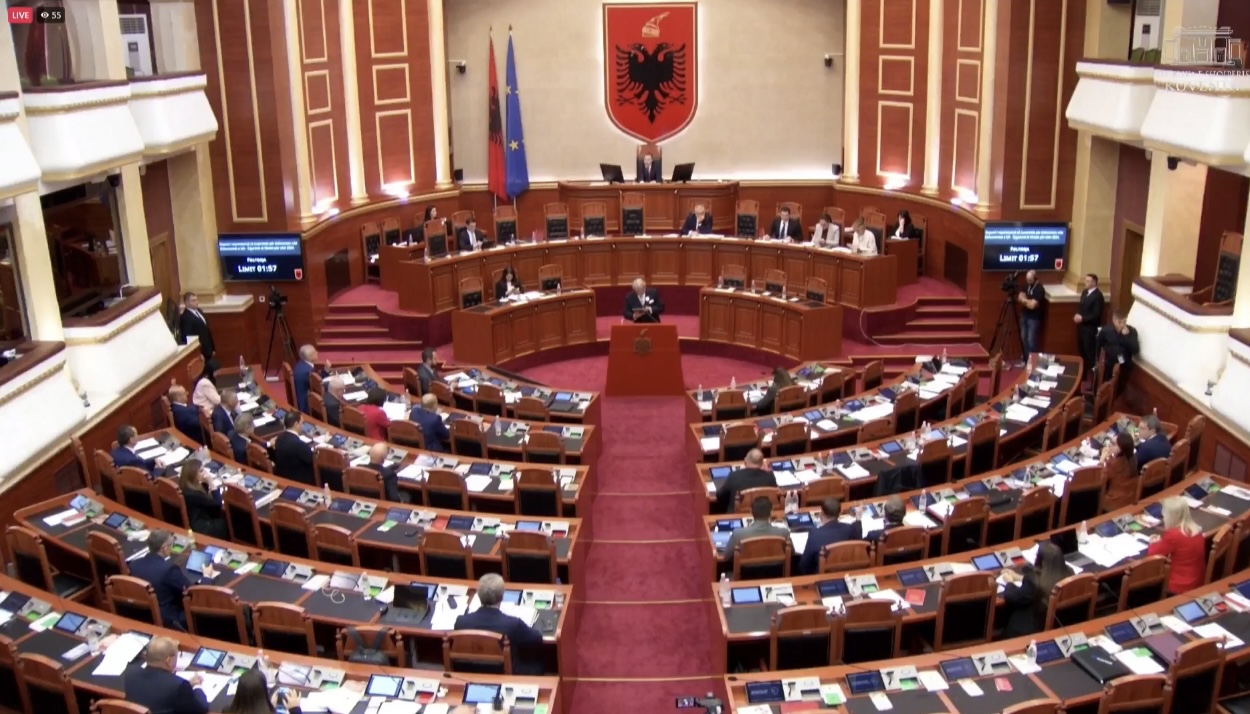PM Edi Rama, EU Commissioner condemn Sali Berisha’s attack against EU ambassador over gender equality law

Former Prime Minister Sali Berisha has sparked widespread backlash following a controversial attack on EU Ambassador Silvio Gonzato during a parliamentary session over a proposed gender equality law.
Why is this important: The draft law submitted by the ruling Socialist Party has become a lightning rod in Albanian politics, igniting intense debate over gender identity, family values, and EU integration. Critics and the opposition, claim it undermines traditional Albanian families by recognizing “multiple gender identities.” Proponents argue the law simply reinforces the constitutional principle of non-discrimination.
Context: From the floor of Parliament, Berisha accused Ambassador Gonzato of pushing a law not based on any EU directive, calling it “an assault on the Albanian family” and part of a wider “Soros agenda” funded by George Soros. He then made personal insinuations about the ambassador’s sexual orientation, saying:
“We respect your orientation, but don’t impose it on the Albanian people.”
His remarks triggered immediate condemnation.
The SP head of parliamentary group Taulant Balla responded to Berisha by emphasizing that the law in question is not about gender ideology. It’s about equal pay and ending discrimination. “Those against it are against gender equality itself,” he accused Berisha.
Balla also noted that gender identity protections were already part of the 2010 anti-discrimination law—passed under Berisha’s own government—and the Istanbul Convention, ratified by Albania. He announced a formal complaint to Parliament’s Ethics Committee, accusing Berisha of violating diplomatic norms and the Vienna Convention.
NGOs and equality activists slammed Berisha’s speech as discriminatory and damaging to Albania’s image abroad.
EU reaction: European Enlargement Commissioner Marta Kos condemned Berisha’s comments as “unacceptable,” affirming that gender equality and non-discrimination are core principles of EU law and a condition for Albania’s EU membership.
“This is not a private request by Ambassador Gonzato,” she wrote. “Compliance with EU values is part of the accession process.”
Political protest: The opposition Democratic Party held a protest against the law, framing it as a “cultural imposition.” President Ilir Meta, speaking from prison, called it “a vote against the nation.”
Religious opposition: The Interfaith Council of Albania, representing Albania’s highly respected religious communities, issued a joint statement reaffirming their opposition to any threats to “the fundamental values of the family, Albania’s moral and social tradition, and our religious principles.” They called for dialogue with state institutions and civil society.
What’s unclear: Despite the storm, there is confusion about the law’s exact content. Numerous amendments and counter-amendments have been filed, and the Socialists have flip-flopped on the more contentious language, introducing new amendments that are highly technical or vague. Critics claim this ambiguity is deliberate.


